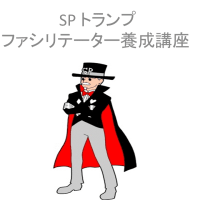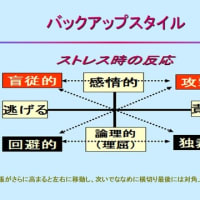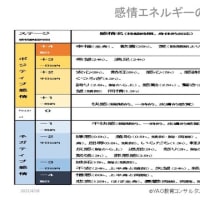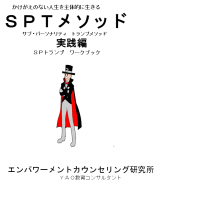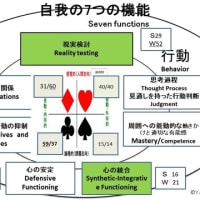7. What I learned in the group study
(1) What I learned in the group study Soe Itakura
I have long been interested in the "roots of the Japanese people." As new coronavirus infections (pandemics) spread globally, I began to think about the significant difference in countermeasures and the degree of disease between Japan and other countries. It might be due to the Japanese national character, and I became interested in learning more about the Japanese national character.
a. The fundamental values that Japanese people emphasize are safety, freedom, and equality.
The most crucial matter is safety.
"Freedom" is not something that we Japanese have won for ourselves, but something that has been given to us, and in some respects, we do not understand its intrinsic value.
And while "equality" is essential, I believe the concept of "fairness" is more important. I understand "fairness" to mean "to make sure that people are equal by getting on the footstool).
(This time, I learned the difference between equality and fairness.) When you get down to fairness, you can achieve essential equality.
b. Japanese people believe that they cannot go against nature and have chosen to live in harmony with nature.
Religion: It is said that many Japanese people are non-believers, but this is not true. They unconsciously engage in religious behavior. For example, they pay homage to Hatsumode (New Year's visit to a shrine), pray for good luck, visit temples, etc.
c. The Japanese people have a fundamental "anxious feeling" that forms the basis of their national character. Many Japanese people have low serotonin levels, a neurotransmitter in the brain that suppresses "anxiety," This is why most Japanese are "worriers. It has been proven that Japanese people secrete the lowest amount of serotonin, which stops this feeling of anxiety in the world. This anxious feeling affects various aspects of the Japanese national character.
d. Japanese people have a low "crisis awareness" even though the Japanese have a strong "feeling of insecurity." It is strange that Japan has been exposed to natural disasters such as typhoons, earthquakes, tsunamis, floods, and volcanic eruptions since ancient times and has suffered tremendous damage yet has low "crisis awareness." It's maybe due to the "hassle-free" and "be not fussy about anything" nature. Let us be fully aware of the "anxious feelings" of the Japanese national character and make decisions and act a little earlier than now. There is no need to be pessimistic. The flip side of this "anxious feeling" is that the Japanese have an excellent temperament of "prudence" and "thoughtfulness."
As inferred from the "History of Infectious Diseases," it is no exaggeration to say that the history of Japan is a history of infectious diseases, as there has never been a time when there was no epidemic of contagious diseases. Infectious diseases have the power to change history. However, even if infectious diseases have been behind the history of Japan, it seems that they are not often brought out into the open and talked about.
b. Finally, regarding "What do the Japanese want to be in the future?
Research has shown that what Japanese people want for their children in the future is "creativity" and "decisiveness."
We continue to value "diligence," "politeness," and "kindness," which are recognized worldwide as Japanese national characteristics.
If we combine them with "creativity" and "decisiveness," we will indeed become a reliable "nation and country in the world."
(2) What I learned through group study Mitsuo Okada
a. I started reading a lot of books. I became interested in Japanese and world events. I began to read a wide range of books, including corona-related books, in fields ranging from medicine and science to politics, economics, and anthropology. It is the first time in my 73 years of life. It was an excellent opportunity for me to "relearn.
b. I remember the words "It's essential to have a passionate heart and a cool head" were found in economics or law textbooks. When communicating one's thoughts and ideas, an overly passionate mind can lead to biased information and errors in logical development. Japanese people have a national tendency to become attuned to the atmosphere quickly. We learned that it is essential to convey theories and ideas with evidence through calm thinking and judgment.
c. It was an excellent opportunity to learn about the Japanese "strengths" and "weaknesses" and think about what we should be in the future.
There are many things to be considered: compassion, hospitality, a spirit of mutual help, the ability to read the air (be careful not to read too much), a peaceful, cooperative, harmonious, and contributive national character, diligence and seriousness, high awareness of public health, meticulousness, accuracy, honesty, politeness, craftsmanship, skill, and a high spirit of pursuing one's path in everything one does.
<Weaknesses of the Japanese people>
Not good at long-term vision and policy. Inability to formulate deep, long-term, and continuous thoughts and verbalize thoughts
They cohere in a small world. Not good with foreigners (language).
Escapist and short-sighted behaviors when anxious or risk-averse.
It forms an uneven society(small village) and uses peer pressure.
The nail that sticks up gets hammered down.
It relies on "heart-to-heart" communication called “ishin-denshin” and is not good at persuasion.
d. "Safety" was an essential theme in the "Fundamental Values Survey" in the group study.
Regarding national defense, unless we break away from dependence on the U.S. and become "independent," I think it will be difficult for us to survive in the severe international society of the future.
e. We will continue to deal with the "anxious disposition" and "natural disasters" for a long time. However, by learning about the "strengths" of the Japanese people as described in c. above, and through creativity and ingenuity, we can create a safe and secure environment and society with less anxiety.
(3) What do you want Japan and the Japanese people to become?
Motoshi Ohara
Since World War II, Japan has demonstrated its national character without regret, working diligently and patiently for its reconstruction. As a result, Japan achieved rapid economic growth and became the world's second-largest economy, a miraculous recovery. However, in the 1990s, the bubble burst, and economic growth stagnated, which was called the "Three Lost Decades.”
Prices and salaries did not rise, and the traditional approach of working hard was no longer acceptable to the rest of the world. Europe, the United States and China have left us behind.
The prolonged economic slump has caused the Japanese people to lose confidence and a feeling of blockage.
It is necessary to believe in oneself and have faith in one's way of life, rather than being "kyoro-kyoro san” or someone worried about what others think.
Up to now, Japan has possessed many world-class traditional cultures such as crafts, arts, and performing skills handed down from generation to generation throughout its long history. Instead of competing on the same level as Europe and the U.S., we do not need to become the "number one" by refining our "creativity and creative ability" based on these traditional cultures. We can regain the "shining Japan and Japanese people" as the "only one" in the world, like the song "Sekai ni hitotsu dake no Hana,” which is translated as “the only flower in the world.”
4) Challenges for the Japanese Yoshiki Yao
The topic of the Japanese national character in the COVID-19 pandemic has focused on the anxious temperament of the Japanese people.
However, it has become clear through study and research that this is also the temperament of the Japanese people under normal circumstances.
We have also learned that this anxiety temperament is the basis for personality development, values, and behavioral patterns.
In daily lives and economic activities, Japanese people have a strong need for safety and accuracy, such as not making mistakes, and a strong need for acceptance and affiliation, such as not being disliked by others and not causing trouble.
Therefore, they sometimes feel that they are putting the brakes on their way of life because they are worried that these needs may be threatened.
Borrowing from Maslow's theory of the stages of need, we examined the specific elements highlighted by the Japanese national character in the COVID-19 pandemic. Many satisfy physiological needs (physical needs), safety, and social needs (human connections).
Maslow proposed that when these desires are met, the desire for self-esteem (achievement/praise) and the desire for self-actualization will arise next.
(Although there is no empirical data, the concept is often used in human motivation and marketing.)
However, even when the desire for self-esteem and self-actualization arises spontaneously from within, something still prevents us from taking the first step toward a self-actualized life that is uniquely our own.
This year, Shohei Ohtani, a Japanese baseball player playing in the Major league, played a very successful year.
He impressed not only baseball fans but also many people and gave pride to the Japanese people.
He has undoubtedly set many records because of his human nature. He was lucky to have found a good mentor.
But I would like to focus on the fact that he stuck to his authentic two-way baseball style as a pitcher and hitter, which won a "popular word award" in Japan and realized his baseball style.
I also found that today's parents want a lively and self-actualizing society for their children.
To live a life that is true to yourself, a life that embodies your potential, an irreplaceable life, you must have the will to live your own life, rather than always being bound by the 'reductionism' that comes from failure and worrying about what others think."d an irreplaceable life, we need to have the will to stick to our way of life instead of always being bound by the "demerit mark (point) system" that comes from failure and worry about what other people think."
Acknowledgments
Finally, we would like to thank our instructor, Professor Judy Noguchi, for her interest in and guidance in our group study.
8. References
Survey Method
1. Edited by Izumi Niemura (November 11, 1998): Koujien 5th edition, Iwanami Shoten
2. Edited by Akira Matsumura (October 27, 2006), Daijirin 3th edition, Sanseido
3. The Institute of Statistical Mathematics (The 13th National Survey) 2016
https://www.ism.ac.jp/kokuminsei/table/index.htm
Discussion and Conclusion
4. Values
World Values Survey Comparison of 77 countries
(1) "Japan Time Series Comparison," World Values Survey 1990-2019 Japan Time Series Analysis March 2020
(2) "International Comparison of up to 77 Countries" 7th World Values Survey Report: Comparison of up to 77 countries reveals
Dentsu Research Institute March 2021
(3) International Survey on Values in the Corona Pandemic, Japan Wave 1 results released July 28, 2020
Keio University, Nagoya University of Commerce
5. On serotonin
(1) Fumiyo Murakami, Kyoo Shimomura, Kazuhiko Kotani, Shiro Ikawa (January 1999) "Anxiety characteristics associated with polymorphisms in the serotonin transporter gene regulatory region" Journal of Human Genetics 17DOI:10.1007/s100380050098
(2) Takashi Maeno, Graduate School of System Design and Management, Keio University (September 18, 2020) "Coping with the Worry Genotype of Many Japanese People.”
https://shuchi.php.co.jp/article/7930?p=1
(3) Joan Y. Chiao & Katherine D. Blizinsky (October 28, 2009) "Individualism-Collectivism and Culture-Gene Coevolution of the Serotonin Transporter Gene." https://royalsocietypublishing.org/doi/full/10. 1098/rspb.2009.1650
(4) Takanori Arai, Specialist in Cardiovascular Medicine (November 26, 2015) "Are the Japanese a highly anxious people?" http://jsca.co.jp/stressnews/2015/11/26/
(5) Nobuko Nakano, Brain scientist, (November 30, 2015) “The anxious temperament of the Japanese “
https://rikei-biyouka.com/2019/03/lifestyle/
6. Regarding the health care system
(1) Japan Health Policy Institute (November 2017), "Survey of Health Care Systems."
(2) Ministry of Health, Labour and Welfare (2018) "Health Care System Country Comparisons" "OECD Member Country Comparisons. "Member Country Comparisons."
7. On social style
(1) David W. Merrill & Roger H. Reid (1981) "Personal Styles and Effective Performance" Chilton
Book Company, P.P. 53
(2) (legally) incorporated educational institution, Sanno Institute of Management (1970)
Social Style "Data on the Japanese.”
8. On personality and subpersonality
(1) Koji Shimizu (October 7, 2004) "Personality Psychology," Natsume Inc.
(2) Roberto Assagioli (June 15, 1997) "Psychosynthesis," Seiro Kuniya and Sonoe Hiramatsu, co-translator, Seishin Shobo
(3) YAO Educational Consultants and Empowerment Counseling Institute (May 2017) SP (sub-personality) characteristics, "SPT Methodology Empirical Data."
9. On the theory of the Japanese people
(1) Takaki Okubo (May 25, 2003) "Genealogy of Japanese Culture Theory" Chuo Shinsho
(2) Shoichi Saeki and Toru Haga (March 25, 1987) "Famous Japanese Studies by foreigners" Chuoshinsho
10. Regarding Vaccine
(1) Prof. Tetsuo Nakayama (Clinical Virology), Kitasato Institute of Life Sciences (2021)
Inquired by "Vaccine lawsuit judgment 1992" /item (bitter memory of the past) Vaccine in Japan
(Concerns about the impact of the deployment of the drug) https://www.dailyshincho.jp/article/2021/05241115/?all=1
(2) MHLW Adverse Reaction Subcommittee (November 12, 2021) FNN Prime Online "Video on HPV Vaccine."
11. On the history of infectious diseases
(1) WEB Disaster Prevention Information Newspaper (free version) (September 5, 2021) bosaijoho.net/2021/09/05/selected items "Disasters in Japan, chronology" "Infectious disease epidemic, food and drink poisoning, quarantine,"
(2) Hiroyuki Ishi (January 29, 2021) "Illustrated World History of Infectious Diseases" Kadokawa
(3) Michifumi Isoda (September 20, 2020) "Japanese History of Infectious Diseases" Bungeishunju Ltd.










